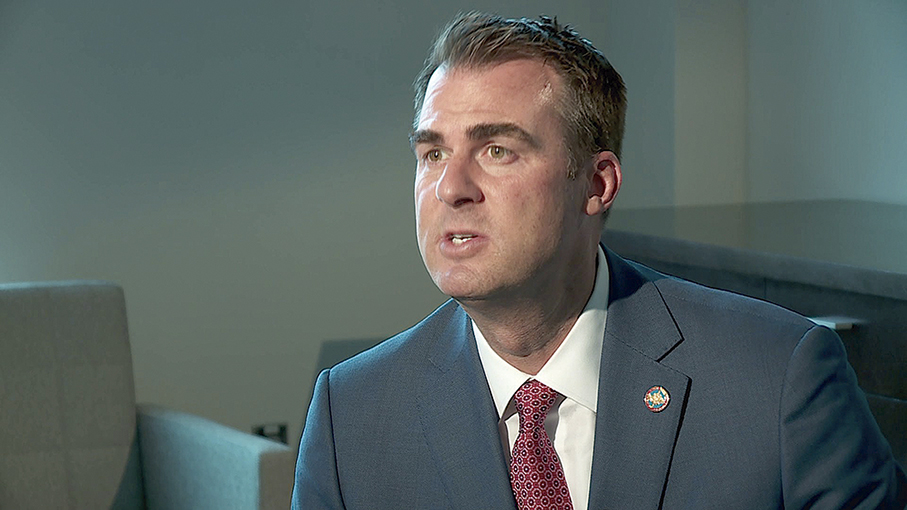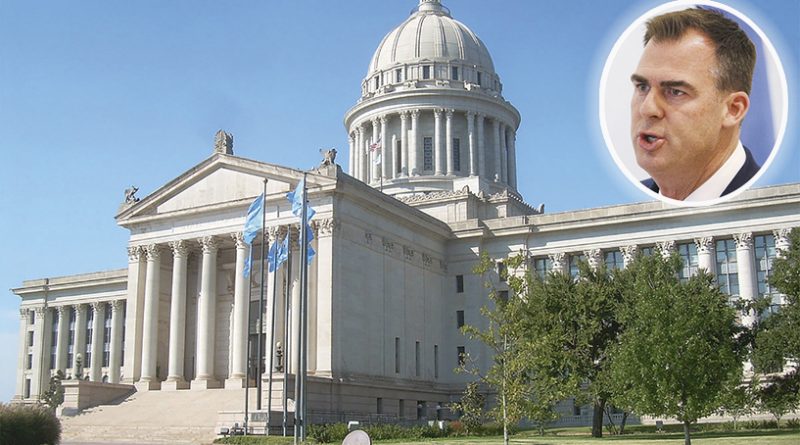Oklahoma se cierra / Oklahoma shuts down
Por William R. Wynn | TULSA, OK
El 24 de marzo el gobernador de Oklahoma, Kevin Stitt, siguiendo el ejemplo de al menos otros 21 estados, ordenó que todos los negocios “no esenciales” en condados donde ha habido una o más pruebas positivas para el virus COVID-19 cesaran las operaciones a partir de las 11:59 pm del 25 de marzo. El cierre tendrá lugar durante al menos los próximos 21 días.
“Seguimos comprometidos a tomar decisiones basadas en datos confiables, ciencia emergente y el asesoramiento de expertos del grupo de trabajo de soluciones de mi gobierno, el departamento de salud del estado y el CDC sobre la mejor manera de frenar la difusión del COVID-19″, dijo Stitt. Estos nuevos elementos de acción nos permitirán garantizar que sigamos siendo proactivos en nuestra respuesta a esta crisis en curso. Seguiremos tomando las precauciones y medidas necesarias para dar prioridad a la salud y la seguridad de los cuatro millones de habitantes de Oklahoma.”
Stitt también anunció una política de “seguridad en el hogar”, que obliga a todos los adultos mayores de 65 años y a las personas vulnerables con graves enfermedades subyacentes a permanecer en sus hogares.
La orden del gobernador limita las reuniones a no más de 10 personas, prohíbe las visitas a hogares de ancianos y centros de atención a largo plazo, y pospone todas las cirugías electivas, procedimientos médicos menores y procedimientos dentales que no sean de emergencia hasta el 7 de abril de 2020. Los salones de belleza, spas y salas de masajes también deben cerrar.
Las tiendas de abarrotes, las farmacias y algunos sectores manufactureros considerados esenciales para el interés nacional permanecerán abiertos.
Los alcaldes de las principales ciudades de Oklahoma, encabezados por el alcalde de Tulsa G.T. Bynum, ordenaron previamente el cierre de todos los bares y comedores de todos los restaurantes, junto con gimnasios, cines y otros lugares públicos de entretenimiento.
Algunos ven las acciones para restringir el movimiento de los Sooners como extremas, pero cuando se enfrentan a la realidad de un enemigo invisible que ya ha matado a casi 20.000 personas en todo el mundo en menos de cuatro meses la mayoría de los residentes dicen que están dispuestos a hacer el sacrificio.
Pero salvar vidas viene con un alto precio, no solo por el costo del tratamiento, sino también por la rápida devastación de una economía que antes era sólida. Se ha estimado que más de la mitad de todos los restaurantes de EE.UU. cerrardos debido a la pandemia de COVID-19 pueda que nunca vuelvan a abrir, y la cifra podría llegar al 75 por ciento.
China, incluso con el lujo de tener un gobierno autoritario que no necesita esperar al consenso político para actuar, está luchando por restaurar su propia economía, que se vio afectada durante el nuevo año lunar. Pero la vida en la economía China está volviendo con lentitud, y los líderes en los EE.UU. esperan comenzar las cosas aquí con un paquete de estímulo de entre 4 y 6 billones de dólares. Queda por ver cómo esto ayudará a la creciente legión de servidores de restaurantes desempleados, taxistas, trabajadores de la construcción, personal de hoteles y otros, y la inyección de una suma tan grande de dinero también trae consigo la amenaza real de la inflación y la devaluación del dólar. (La semana)

Oklahoma shuts down
By William R. Wynn | TULSA, OK
On March 24 Oklahoma Governor Kevin Stitt, following the lead of at least 21 other states, ordered all “non-essential” businesses in counties where there has been one or more positive tests for the COVID-19 virus to cease operations effective 11:59 pm on March 25. The shutdown will be in effect for at least the next 21 days.
“We remain committed to making decisions based on reliable data, emerging science and the advice of experts from my Governor’s Solution Task Force, the State Department of Health and the CDC on how to best slow the spread of COVID-19,” Stitt said. “These new action items will allow us to ensure we remain proactive in our response to this on-going crisis. We will continue to take the necessary precautions and steps in order to prioritize the health and safety of all four million Oklahomans.”
Stitt also announced a “Safer at Home” policy, compelling all adults over the age of 65 and vulnerable individuals with serious underlying medical conditions to remain in their homes.
The governor’s order limits gatherings to no more than 10 people, bans visitations to nursing homes and long-term care facilities, and postpones all elective surgeries, minor medical procedures and non-emergency dental procedures until April 7, 2020. Hair salons, spas and massage facilities must also close.
Grocery stores, pharmacies, and some manufacturing sectors deemed essential to the national interest will remain open.
Mayors of Oklahoma’s major cities, led by Tulsa Mayor G.T. Bynum, previously ordered the closure of all bars and the dining areas of all restaurants, along with gyms, movie theaters, and other public entertainment venues.
Some see the actions to restrict the movement of Sooners as extreme, but when faced with the reality of an invisible enemy that has already killed nearly 20,000 worldwide in less than four months most residents say they are willing to make the sacrifice.
But saving lives is coming with a huge price tag, not just for the cost of treatment but for the rapid devastation of a formerly robust economy. It has been estimated that more than half of all U.S. restaurants closed due to the COVID-19 pandemic may never open again, and the figure could be as high as 75 percent.
China, even with the luxury of an authoritarian government that doesn’t need to wait for political consensus to act, is struggling to restore its own economy, which cratered during the lunar new year period. But the business of life in China is slowing returning, and leaders in the U.S. hope to kickstart things here with a stimulus package of between 4 and 6 trillion dollars. How this will help the growing legion of unemployed restaurant servers, taxi drivers, construction workers, hotel staff, and others remains to be seen, and the injection of such a large sum of money also brings with it the very real threat of inflation and the devaluation of the dollar. (La Semana)


Debe estar conectado para enviar un comentario.